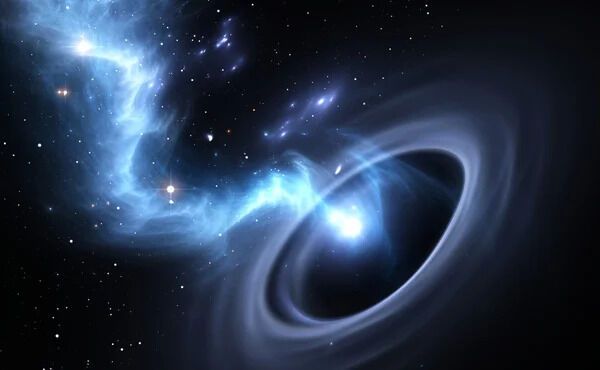News
What would happen to the Earth if the Sun suddenly became a black hole: scientists' answer
The Sun is now approximately in the middle of its existence. It is constantly producing energy (and helium) by fusing hydrogen atoms in its core.
When the reserves of hydrogen in the core are depleted, stars like ours begin the "red giant" phase. NASA explained that in about 5 billion years, a similar situation will happen to the Sun, and it will begin to collapse, IFLScience reports.
"This will allow it to melt the heavier elements in the core, as well as the hydrogen in the shell around the core. When this happens, the Sun's temperature will rise and the outer layers of the solar atmosphere will expand so far into space that they will swallow the Earth," - scientists say.
This phase will last for about a billion years, until the Sun runs out of decayable materials and sheds its outer layers. This will leave a tiny white dwarf with about half the mass of the Sun and about the size of the Earth.
The Sun is too small to form a black hole. But what happens if it does?
It can be assumed that if the Sun turned into a black hole, the Earth would be doomed to fall into it. Black holes are objects with such a strong gravitational force that even light cannot escape them. They suck in the matter around them - mostly gas and dust - growing in the process.
But black holes do not have a gravitational force greater than that created by their mass. The powerful attraction arises from the fact that they were created by giant stars with enormous masses that are contracting within themselves. If the Sun were to turn into a black hole (and this will not happen), it would have the same mass as our Sun.
"Contrary to popular myth, a black hole is not a cosmic vacuum cleaner. If our Sun were suddenly replaced by a black hole of the same mass, the Earth's orbit around the Sun would remain unchanged," NASA explains.
Except for our secure orbit, of course, everything else would change pretty quickly. The Sun, which is now about 700,000 kilometers in radius, would shrink to 3 kilometers in radius.
The main source of heat (geothermal processes would still occur on the planets) of our solar system would disappear. Without it, photosynthesis would immediately cease, and eventually all life on Earth would become extinct. But rest assured, the planet would continue to move in its orbit.
Subscribe to the OBOZ.UA channels in Telegram and Viber to keep up with the latest events.




























